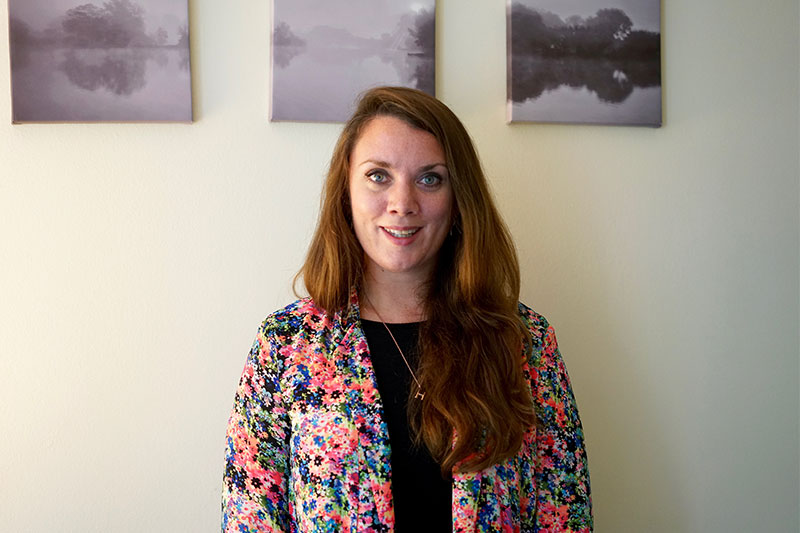Hong Kong’s mental illness epidemic stems from a lack of resources and pervasive stigmas. Mind HK Founder Dr Hannah Reidy, a clinical psychologist and TED Talk speaker, wants to change the narrative of mental health in one of Asia’s most stressed-out cities.
Would it surprise you to learn that, according to an annual survey, only around 14.1% of Hong Kongers have good mental health, while 48% score below the WHO (Five) Well-Being Index’s passing mark? In a congested, competitive, achievement-oriented city like Hong Kong where students are pressured to excel in school, adults are obliged to work long hours that often spill over into overtime, and citizens face considerable social and political pressure, the mental health of Hong Kong’s population is worsening – and all in the face of a culture that equates mental illness with being unhinged, thanks to the strong stigma that is pervasive across multiple demographics. Dr Hannah Reidy, a clinical psychologist with degrees from Oxford University and UCL, is seeking to change the status quo with Mind HK, a charitable initiative that offers mental health-related resources for those in need. She talked us through the urgent issues Hong Kong is facing, thanks to its mental illness epidemic.

“Mind HK aims to ensure that no one in Hong Kong is facing a mental health problem alone,” Hannah tells us. The website offers resources and a service directory in both English and Traditional Chinese to help people access the help they need. It has also trained over 1200 people in mental health literacy and first aid, equipping them with basic mental health knowledge on how to help those in need and intervene in crisis situations. Upon completion of their training, they will be internationally certified in Mental Health First Aid. The response to the initiative has been overwhelmingly positive — according to Hannah, over 14,000 people access Mind HK’s online materials every month. Soon, they will launch their Coolminds initiative, giving students, parents and teachers training and online information that aims to destigmatise the conversation surrounding mental health.
You might also like One Man’s Journey: Changing How We Talk About Men’s Mental Health
This latest initiative is particularly important, thanks to the persistent stigma surrounding mental illness and a culture of conformity embedded in Hong Kong’s history. “We see large amounts of stigma coming from families who, in the past, tend to hide mental health problems away from the outside world,” Hannah laments. Hong Kongers relate mental illnesses to their reputations with many denying they even exist to avoid being labelled ‘crazy.’ “A lot of people wait a significant time prior to seeking help as they feel weak or ashamed of being mentally ill,” Hannah says. As she said in her TED talk, “People take longer to recover from an episode of depression if they are feeling socially isolated than people who are socially connected.” Yet, social norms dictate that they do just that. According to Mind HK’s survey last year, while most respondents agreed that the best way for a person to recover is to be part of the community, 71.1% of them were not willing to live with someone with mental illness and 59.5% said they would not even want to live near them as well.

For Hannah, one of the major drivers is a lack of discussion, with many mental health issues being deemed character flaws. In the same survey, over 41% of respondents believed that one of the main causes of mental illness was a lack of self-discipline and willpower. No wonder that the city is full of people struggling in silence. “Culturally, we do not speak about mental health enough,” says Hannah. “We are trying to encourage day-to-day conversations to make it known that mental health problems are illnesses that must be addressed.” For this reason, they launched Mind HK Media Awards in 2017 to celebrate good mental health reportage in Hong Kong.
Looking to the future, Hannah is hopeful that they can change the way things are from the bottom up. “It is young people who have driven this forward, so they are central to the approach. We have work experience schemes, ongoing opportunities, and consultations with high school students that ensure that we are getting the materials right by them.” They will also launch a Mental Health Conference in November 2020, drawing experts from different professional fields and hosting an open public forum. “As more and more people join us in learning about mental health, engaging with our events, and volunteering their time, we know that Mind HK will continue to grow,” says Hannah. “And this is what we think is at the heart of the matter – more and more community engagement and everyone across Hong Kong taking small steps to slowly change the narrative around mental health for the better.”
Related Articles
Meditation Health App MindFi Could Save Your Life





